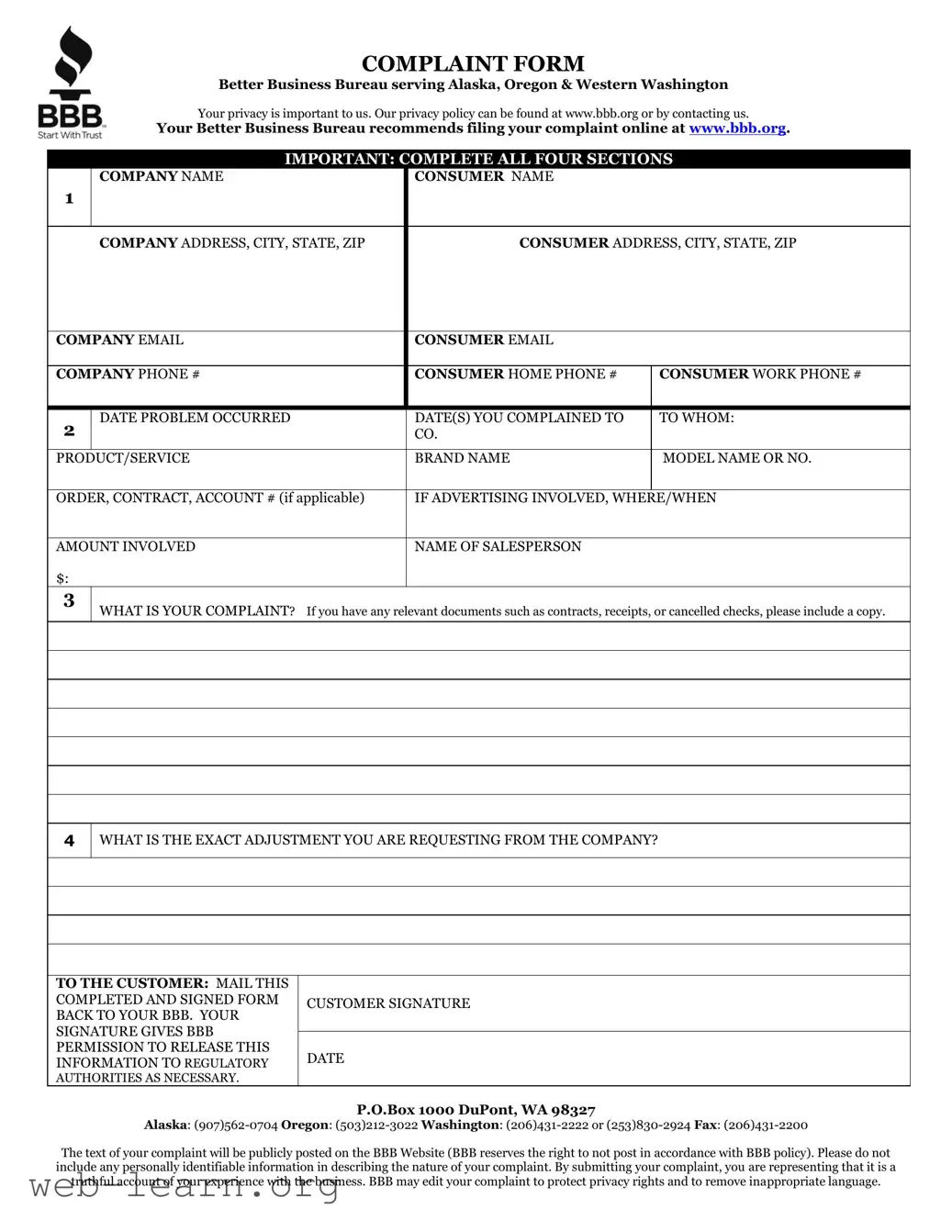Filing a complaint with the Better Business Bureau (BBB) can be an important step in resolving disputes with businesses. However, many people make common mistakes that can hinder the effectiveness of their complaint. Avoiding these errors can increase the likelihood of a successful resolution.
One frequent mistake is not providing enough detail about the issue. Complaints that are vague or lack specific information may not be taken seriously. It's crucial to include relevant dates, transaction amounts, and a clear description of your experience. Adding any relevant communication between you and the business can also strengthen your complaint.
Another common pitfall is failing to include supporting documentation. Simply stating that something went wrong isn’t enough. Attach receipts, emails, or photographs that illustrate the problem. This additional evidence helps the BBB understand your situation better and strengthens your claim.
People also often forget to mention what they seek as a resolution. When you file a complaint, be clear about what outcome you desire. Whether it's a refund, service remedy, or end to a harmful practice, stating your expectations can guide the BBB and the business toward a suitable resolution.
Additionally, waiting too long to submit a complaint can be problematic. Many individuals overlook the importance of timeliness. The BBB encourages reporting issues as soon as possible. Delayed complaints may lose critical context or evidence needed for a proper assessment, and that can weaken your case.
Submitting the complaint to the wrong entity is another common issue. Not all businesses are accredited by the BBB, and sometimes complaints need to go through different channels, like a state consumer protection office. Ensure you are directing your complaint to the right organization to achieve the best results.
Lastly, some individuals do not follow up on their complaint. Once your complaint is submitted, you may need to check back for updates or additional requests for information from the BBB. Staying proactive can demonstrate your commitment to resolving the issue, which can encourage business responsiveness.

